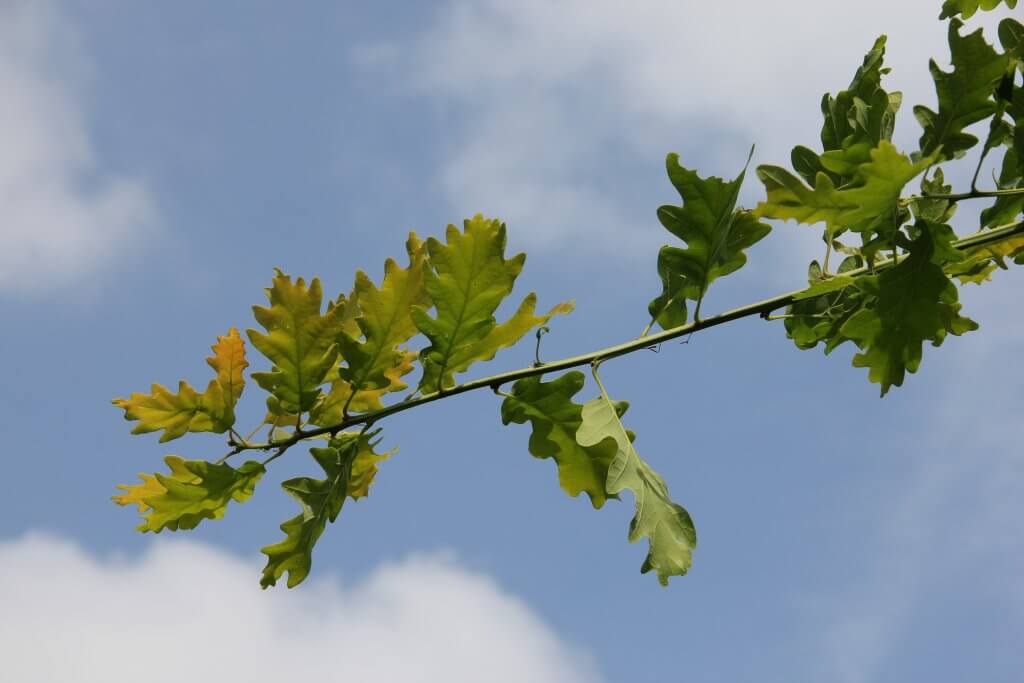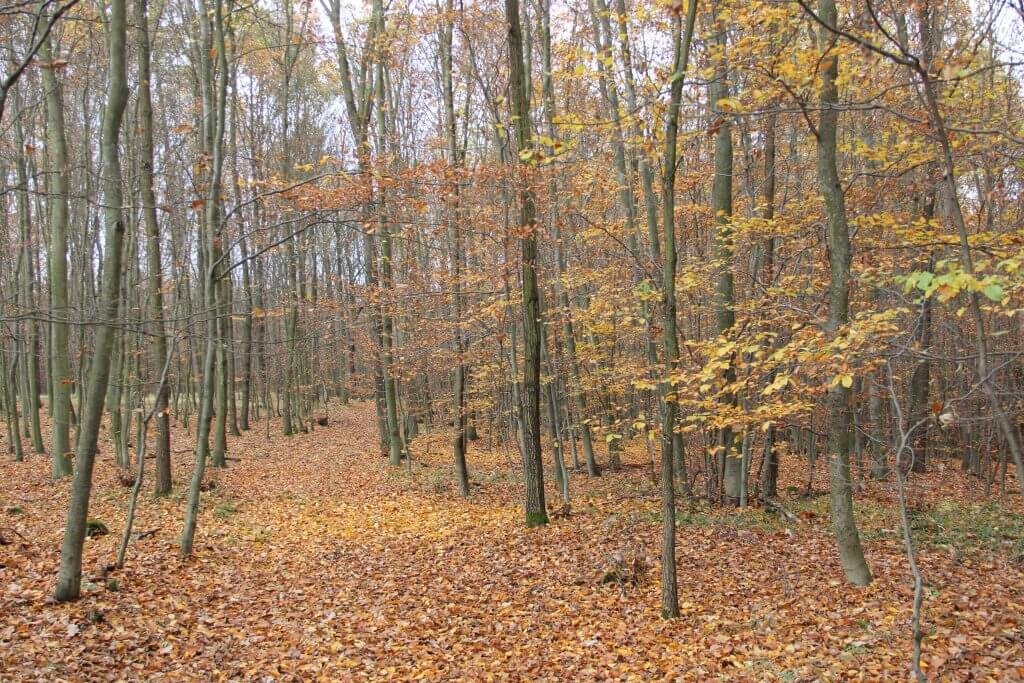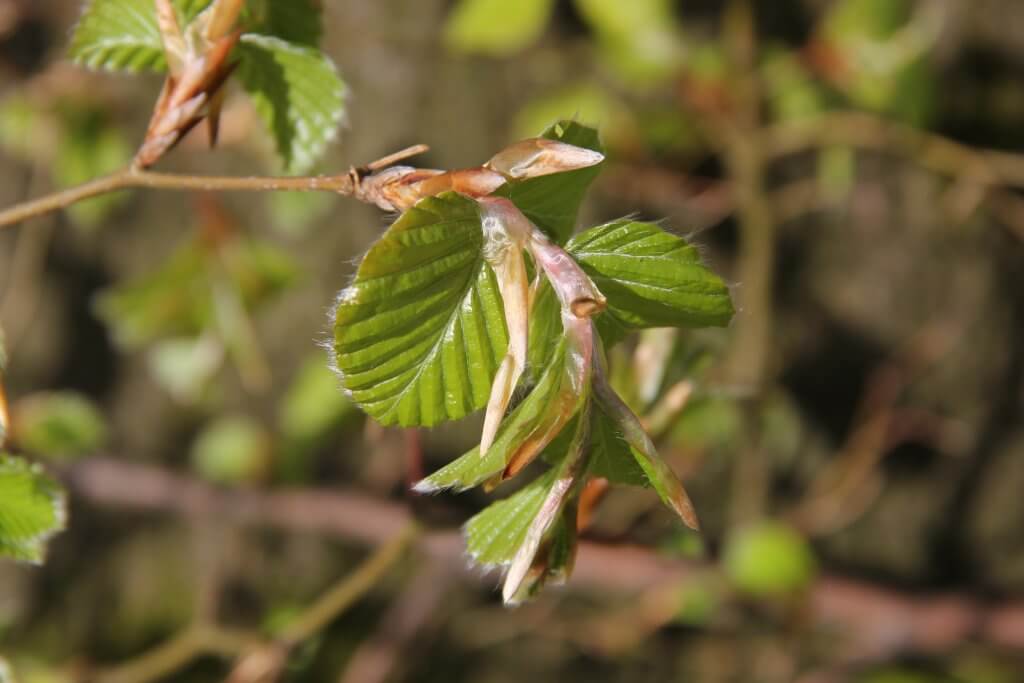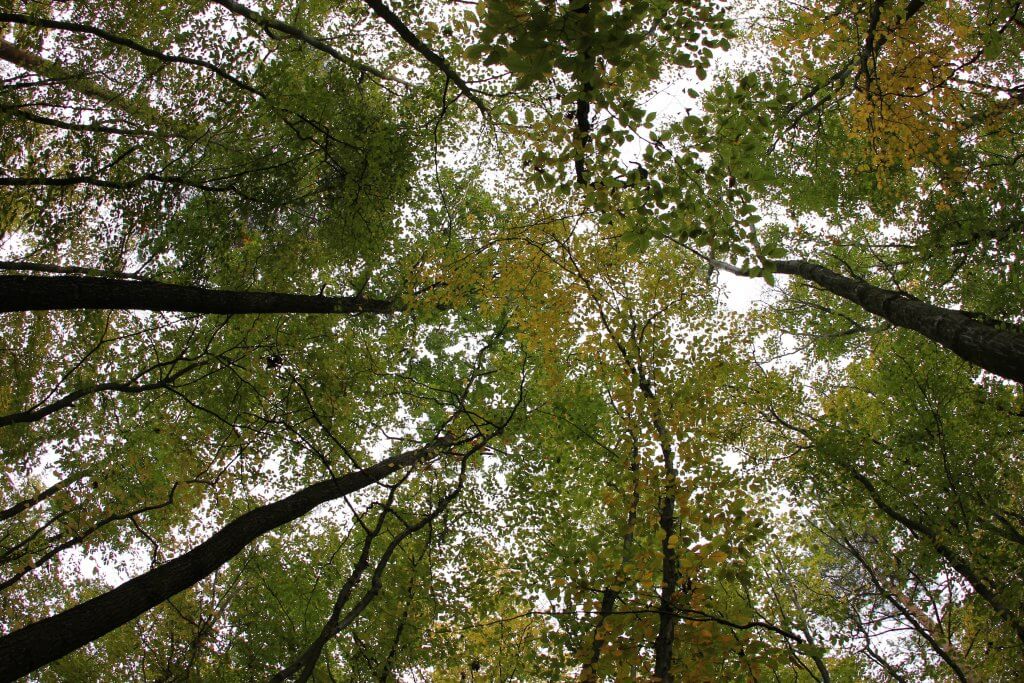Departmental Description – what we do
- Seed production
- Nursery
- Genetics and breeding of forest tree species
- Artificial forest regeneration
- Afforestation
- Rhizology
- Silvicultural systems
- Production potential of tree species
- Ecophysiological response of trees to silvicultural interventions
- Polyfunctional silviculture
- Nature-friendly silviculture
- Planting of purpose-built forests
- Cultivation of intensive forest crops
- Agroforestry
- Adaptation measures in forestry
Background – where we work
- Building B on the University campus – houses the main facilities for scientific work and teaching, with classrooms and departmental offices being located on the 4th and 5th floors.
- The Forest Establishment Laboratory on the 5th floor of Building B provides facilities for testing the quality of seed material and forest tree seeds, the morphological and physiological quality of forest tree planting material and the quality of soil and growing media.
- The School Forest Enterprise – Masaryk Forest Křtiny (SFE Křtiny) – this purpose-built facility is used for practical training of students and for research projects. An educational ‘polygon’ at the Dyke Nursery Facility focuses on nursery technology and includes a laboratory and a classroom in which students can study 23 management models for growing forest stands.
- A Forest Nursery, managed by the Řečkovice Institute in Brno, undertakes nursery research, practical laboratory work and teaching focused on growing bare-root and covered-root planting material and planting using vegetative methods.
- The Faculty of Forestry and Wood Technology and LESCUS s.r.o. Cetkovice maintain a Joint workplace for practical teaching and research in the field of nursery science.




Cooperation – we are not alone
- The Department has a long-standing collaboration with the practical sphere in its teaching and scientific activities, ensuring that its teaching and research projects are aligned with current trends and requirements. Experts from cooperating companies and institutions participate in both theoretical and practical teaching, excursions and joint projects. Under the framework of international collaboration, members of the Department engage in teaching activities and research projects with foreign colleagues from partner institutions, leading to the publication of joint research results.
- AP lesnická s.r.o.
- Arcibiskupské lesy a statky Olomouc s.r.o.
- Biskupské lesy, Biskupství ostravsko – opavské
- Colloredo-Mannsfeld spol. s r.o.
- Environmental Measuring Systems s.r.o.
- ESCUBE, s.r.o.
- Kloboucká lesní s.r.o.
- Lescus Cetkovice s.r.o.
- LESOŠKOLKY, s.r.o.
- Lesy České republiky, s.p.
- Lesy města Brna, a.s.
- Lesy obce Vendolí
- Městské lesy Dačice s.r.o.
- Městské lesy Hradec Králové a.s.
- Městské lesy Volary, s.r.o.
- Oxytree Solutions s.r.o.
- P-D Refractories CZ a.s.
- PEXÍDR s.r.o.
- Photon Systems Instruments spol. s.r.o.
- Správa městských lesů Jihlava, s.r.o.
- UNILES, a.s.
- Vojenské lesy a statky ČR, s.p.
- Wotan Forest a.s.
- Česká zemědělská univerzita v Praze
- Sdružení lesních školkařů ČR, z.s.
- Sdružení vlastníků obecních a soukromých lesů v ČR, z.s.
- Svaz školkařů České republiky, z.s.
- Univerzita Karlova v Praze
- Ústav výzkumu globální změny AV ČR, v.v.i. (CzechGlobe)
- Výzkumný ústav lesního hospodářství a myslivosti, v. v. i.
- Výzkumný ústav Silva Taroucy pro krajinu a okrasné zahradnictví, v.v.i.
- Bayerische Landesanstalt für Wald und Forstwirtschaft, Germany
- BOKU Wien, Austria
- Eberswalde University for Sustainable Development, Germany
- Lasy państwowe, Nadleśnictwo Rudy Raciborskie a Nadleśnictwo Kobiór, Poland
- Národné lesnícke centrum, Slovakia
- Slovenian Forestry Institute, Slovenia
- Technická univerzita vo Zvolene, Slovakia
- Technische Universität Dresden, Germany
- Technische Universität München, Germany
- University of Agriculture in Krakow, Poland
- University of Belegrade, Serbia
- University of Birmingham, UK
- University of Freiburg, Germany
- University of Life Sciences in Poznan, Poland
- University of Ljubljana, Slovenia
- University of Novi Sad, Serbia
- University of Zagreb, Croatia
- Združenie lesných škôlkarov Slovenskej republiky, Slovakia
Departmental staff – who we are
The Departmental staff is structured to cover all specialisations in the field of forest establishment and cultivation, both in teaching and research. The team also includes staff from commercial enterprises and from abroad. The Department places great emphasis on supporting young staff, especially PhD students.
Head of department – Department of Silviculture
Externí oponent – Faculty of Forestry and Wood Technology
Department of Silviculture
Staff
-
Dr. Matjaž Čater
Výzkumník projektu IV
Office: B4.47
Phone: +420 545 134 124
E-mail: matjaz.cater@mendelu.cz
-
Ing. Jakub Černý, Ph.D.
Academic staff – assistant
Office: B4.46
Phone: +420 545 134 130
E-mail: jakub.cerny@mendelu.cz
-
Ing. Pavel Horák
Academic staff – assistant
Office: B4.46
Phone: +420 545 134 130
E-mail: pavel.horak@mendelu.cz
-
Ing. Kateřina Houšková, Ph.D.
Assistant Professor
Office: B42, B5.15
Phone: +420 545 134 132
E-mail: katerina.houskova@mendelu.cz
-
Ing. Petra Jablonická
Academic staff – assistant
Office: B4.46
Phone: +420 545 134 130
E-mail: petra.jablonicka@mendelu.cz
-
Ing. Jiří Kadlec, Ph.D.
Assistant Professor
Office: B4.42
Phone: +420 545 134 553
E-mail: jiri.kadlec.uzpl@mendelu.cz
-
Ing. Petra Kadlecová
Výzkumník projektu I
Office: B5.15
Phone: +420 545 134 130
E-mail: petra.kadlecova.uzpl@mendelu.cz
-
doc. Ing. Robert Knott, Ph.D.
Academic staff – Associate Professor
Office: B35, B4.47
Phone: +420 545 134 124
E-mail: robert.knott@mendelu.cz
-
Ing. Martin Kománek
Academic staff – assistant
Office: B4.45
Phone: +420 545 134 129
E-mail: martin.komanek@mendelu.cz
-
Ing. Roman Longauer, CSc.
Assistant Professor
Office: B5.16
Phone: +420 545 134 134
E-mail: roman.longauer@mendelu.cz
-
Ing. Kateřina Macháčková
Technical worker for educational process, Academic staff – assistant
Office: B4.40
E-mail: katerina.machackova@mendelu.cz
-
doc. Ing. Antonín Martiník, Ph.D.
Academic staff – Associate Professor
Office: B5.19
Phone: +420 545 134 128
E-mail: antonin.martinik@mendelu.cz
-
prof. Ing. Oldřich Mauer, DrSc.
Dohoda o pracovní činnosti, Dohoda o provedení práce
Office: B5.17
Phone: +420 545 134 136, +420 723 935 882
E-mail: oldrich.mauer@mendelu.cz
-
Ing. Václav Mergl, Ph.D.
Assistant Professor
Office: B3.40
Phone: +420 545 134 103
E-mail: vaclav.mergl@mendelu.cz
-
Ing. Anna Mária Mitrová
Academic staff – assistant, Koordinátor aktivity projektu
Office: B5.21
Phone: +420 545 134 552
E-mail: anna.mitrova@mendelu.cz
-
Ing. Kateřina Novosadová
Academic staff – assistant
Office: B4.42
Phone: +420 545 134 553, +420 739 636 378
E-mail: katerina.novosadova@mendelu.cz
-
Matouš Pinkava
Technik pro výzkum
Office: B5.13
Phone: +420 545 134 135
E-mail: matous.pinkava@mendelu.cz
-
doc. Ing. Radek Pokorný, Ph.D.
Academic staff – Associate Professor
Office: B4.44
Phone: +420 545 134 122, +420 605 236 551
E-mail: radek.pokorny@mendelu.cz
-
Bc. Tomáš Pořízka
Technik pro výzkum
E-mail: tomas.porizka@mendelu.cz
-
Mgr. Věra Řepková
Dohoda o provedení práce
Office: B4.35
Phone: +420 545 134 181
E-mail: vera.repkova@mendelu.cz
-
Blanka Špačková
Assistant
Office: B4.43
Phone: +420 545 134 123
E-mail: blanka.spackova@mendelu.cz
-
Ing. Dušan Utinek, Ph.D.
Dohoda o provedení práce
E-mail: dusan.utinek@mendelu.cz
-
doc. Ing. Tomáš Vrška, Dr.
Academic staff – Associate Professor
Office: B4.39
Phone: +420 602 794 216
E-mail: tomas.vrska@mendelu.cz
-
Ing. Eliška Žižková
Academic staff – assistant
Office: B4.40
E-mail: eliska.zizkova@mendelu.cz
History
- The establishment of the University of Agriculture in Brno and its forestry specialization in 1919 created the conditions for the establishment of individual professional departments, including the Department of Silviculture, whose founder and head until the closure of universities in 1939 was Prof. Dr. Josef Konšel, Dr. h. c. In 1923 he was appointed Professor of Forestry and Forest Habitat Science. He focused on the biological foundations of forest cultivation and guided the entire department in this direction. He is regarded as one of the modern founders of forest establishment and silviculture. He is considered one of the modern founders of forest establishment and cultivation. He was the Dean of the Faculty of Forestry at the University of Agriculture in Brno and also the Rector of the University of Agriculture in Brno, a member of the ČAZV, the Masaryk Academy of Labour, the Moravian Society of Natural History and the Scientific Forestry Society of Suomi (Finland). His culminating work in life was the Scientific Dictionary of Forestry, which he created and published in 1932-1940. The dictionary is still one of the key works of Czech forestry literature. Among Konšel’s other publications, there should be mentioned at least The Science of Forest Habitats (1932), Forest Experimentation (1928) and A Brief Outline of the Creation and Cultivation of Forests in Biological Understanding (1931). He translated into Czech the important work of A. K. Cajander the Concept and Meaning of Forest Types (1927).
- Since 1945, the department was led by Prof. Dr. Bohuslav Polanský, DrSc., who focused on the possibilities of introducing exotic tree species. He conducted phenological and microclimatic observations and measurements in forest stands, explored ways and possibilities to reduce and eventually eliminate clear-cutting, and emphasized the importance of understanding the technical maturity of individual trees. He strongly advocated for the cultivation of mixed stands that included both principal and secondary woody species, especially overtopping species. His work encompassed not only the biological aspects of forestry but also the technical ones, aiming at the rationalization and protection of forests. He proposed various technical solutions for forest nurseries, as well as machinery and tools for timber extraction within forests that would protect surrounding trees. In collaboration with prominent silviculturists, he published the university textbook Silviculture in 1966, which followed in the tradition of the first Czech textbook on the subject, written by Professor Josef Konšel.
- In 1963 the department was divided into the Department of Forest Establishment and Breeding of Forest Tree Species, which was headed until 1982 by Prof. Dr. Josef Kantor, DrSc. (besides a number of scientific and professional works, his main work is the university textbook Forest Establishment and Breeding of Forest Tree Species, which deepens the ideas of the biological concept of forests of prof. J. Konšel) and in the years 1982 – 1986 this department was led by Assoc. Prof. Vladimír Jura, CSc. and the Department of Forest Cultivation which was headed by Prof. Dr. Ing. Miroslav Vyskot, DrSc. until 1985. The result of monitoring the development of stands on long-term research plots established under the guidance of Prof. M. Vyskot and the work on newly established research stations, closely linked to projects of the Department of Forest Ecology, was the clarification of the effects of phytotechnics on primary production and on strengthening the stability of forest stands.
- Between 1986 and 1990 the two departments were merged and the merged unit worked under the leadership of Prof. Ing. Jiří Pospíšil, DrSc..
- Between 1990 and 1998, both departments resumed their independent activities. The Department of Forest Establishment was led until 1994 by Prof. Ing. Jiří Pospíšil, DrSc., and from 1994 to 1998 by Assoc. Prof. Ing. RNDr. Eva Palátová, Ph.D. The Department of Forest Cultivation was then headed by Prof. Ing. Vladimír Tesař, CSc., a promoter of the idea of forest management in harmony with nature, respecting the ecological essence of forests (Dauerwald). Prof. Tesař played a key role in founding the Czech branch of Pro Silva Europa: Pro Silva Bohemica (1995) and became its first chairperson.
- The department, in its current form, has existed since May 15, 1998, when it was re-established through the merger into the Department of Silviculture. The merged department was led by Professor Ing. Petr Kantor, CSc., who was appointed on November 1, 1998. He contributed to research into regenerative cutting in pine, spruce, and mixed stands, but especially to deepening knowledge of the water balance in mountain and foothill forests in relation to their species composition and management. He also focused on the production potential of tree species in mixed stands.
- Since 2011, the department has been led by Assoc. Prof. Ing. Radek Pokorný, Ph.D., who has directed it toward forestry adaptation measures in the context of climate change. The department is currently primarily focused on applied ecophysiology, multifunctional forest management, and fully adheres to the principles of nature-based and sustainably managed forestry, the foundations of which were laid by Professor Josef Konšel.
- In 1999, the Department of Silviculture, together with the Department of Silviculture of the Technical University in Zvolen, initiated the organization of a Czech-Slovak conference for institutions engaged in scientific research in the field of silviculture. The first conference was held at the Training Forest Estate at Křtiny near Brno, (under the theme “Silviculture in Anthropogenically Altered Environments,”) and was attended by 55 silviculturists from the Faculty of Forestry and Wood Technology in Brno, the Faculty of Forestry in Zvolen, the Forest Research Institute in Zvolen, the Faculty of Forestry in Prague, and the Forestry and Game Management Research Institute in Opočno. This laid the foundation for a tradition of regular international professional meetings of institutions focused on silvicultural topics, with the hosting responsibilities rotating among the participating institutions. Each conference is accompanied by the publication of a peer-reviewed scientific proceedings titled “Proceedings of Central European Silviculture”.
- Exchange educational excursions of students and teachers of the FFWT MENDELU in Brno and the Faculty of Forestry, University of Zagreb have been taking place in the form of weekly exchange excursion programmes since 2006. The interruption occurred only during the Covid-19 pandemic in the years 2019–2021. The excursion visit of Croatian students is usually organized at the beginning of May, featuring demonstrations of pine cultivation on poor sites, game breeding in enclosures, restoration of calamity clearings, oak and beech cultivation in mid-elevation areas, floodplain forest management, and concluding with a tour of the Faculty of Forestry and Wood Technology. The excursion visit of Czech students is usually organized at the end of May or the beginning of June, including demonstrations of forest management in the EU Mediterranean and sub Mediterranean regions, selection forest management, cultivation of Slavonian oak in floodplain forests, and concluding with a tour of the Faculty of Forestry in Zagreb. The programmes are slightly adjusted each year.
- In the past, the Department of Silviculture, together with the Institut für Waldbau of the Tharandt Faculty of Forestry at TU Dresden, organized joint colloquia at two-year intervals. In 1996, the department hosted the 12th joint colloquium in Brno on the topic Waldbau und Naturschutz (Silviculture and Nature Conservation). In 1998, the 13th colloquium was held in Niederspree, Saxony, on the theme Die Baumart Kiefer im ökologischen Waldbau (The Pine Tree Species in Ecological Silviculture), and from October 12 to 14, 2000, the Department of Silviculture organized the 14th colloquium at the Faculty of Forestry and Wood Technology in Brno on the topic Die Baumart Buche im ökologischen Waldbau (The tree species beech in ecological forest management). After a longer break, the Department of Silviculture once again organized a joint colloquium from October 22 to 24, 2012, at the Bílý Kříž Experimental Ecological Facility, focusing on applied ecophysiology in forest cultivation. However, this colloquium became the last one held so far.